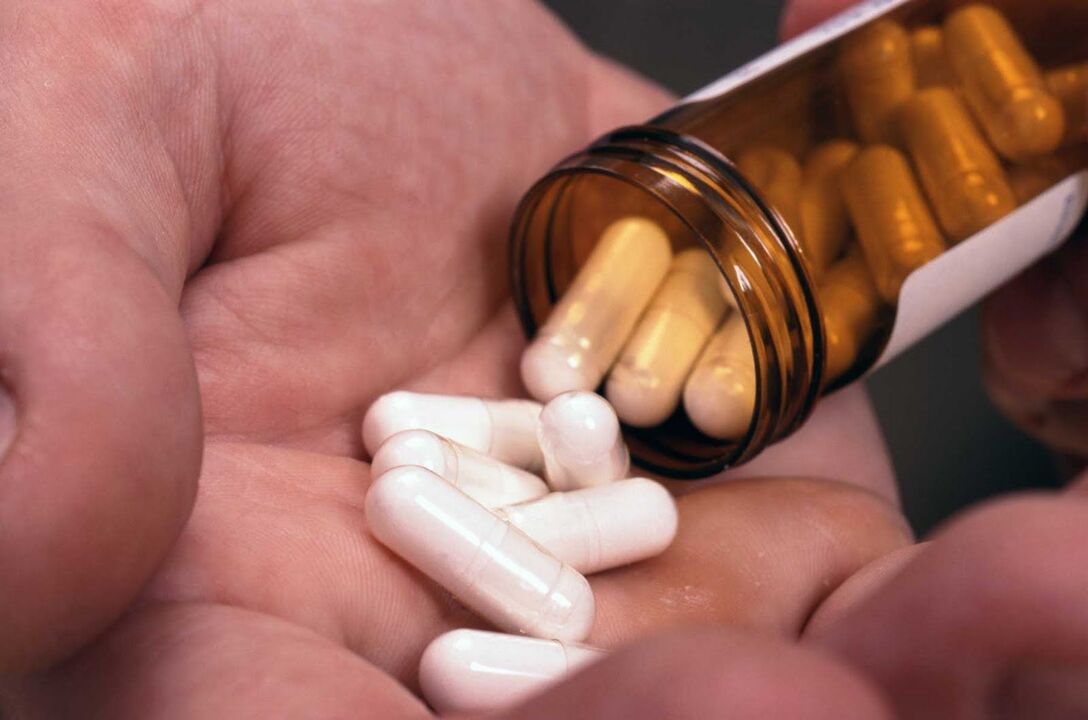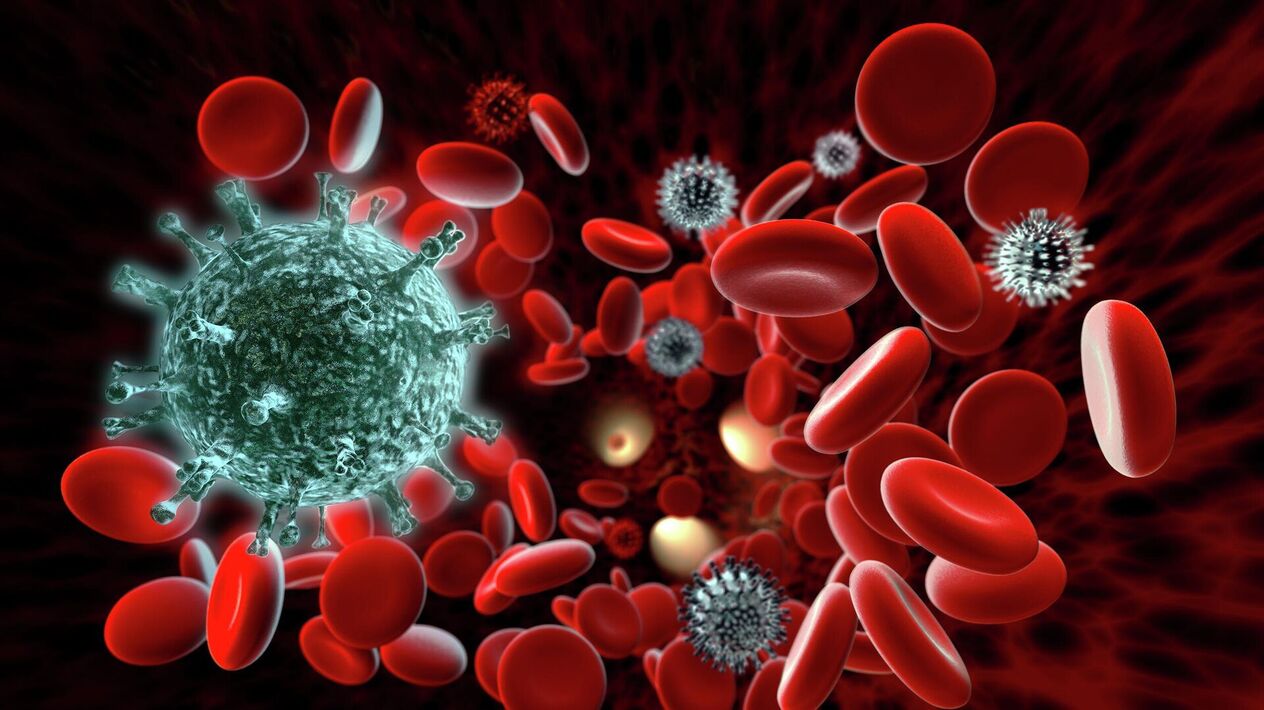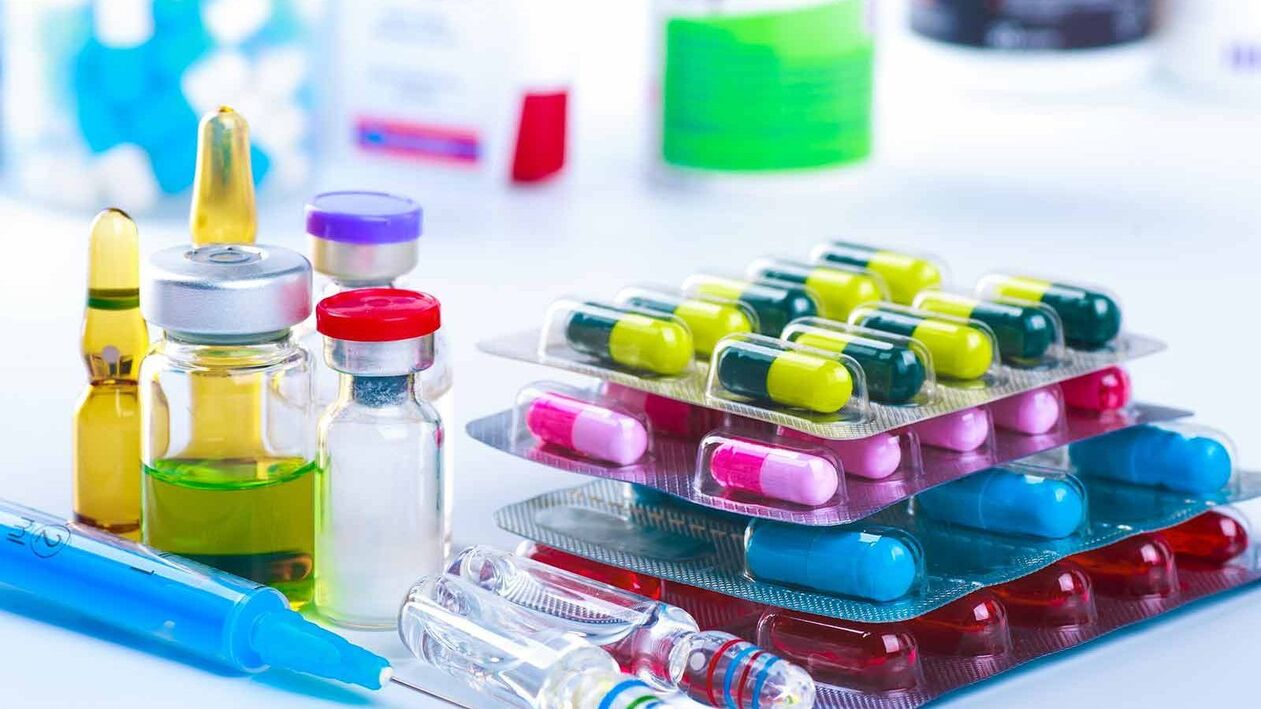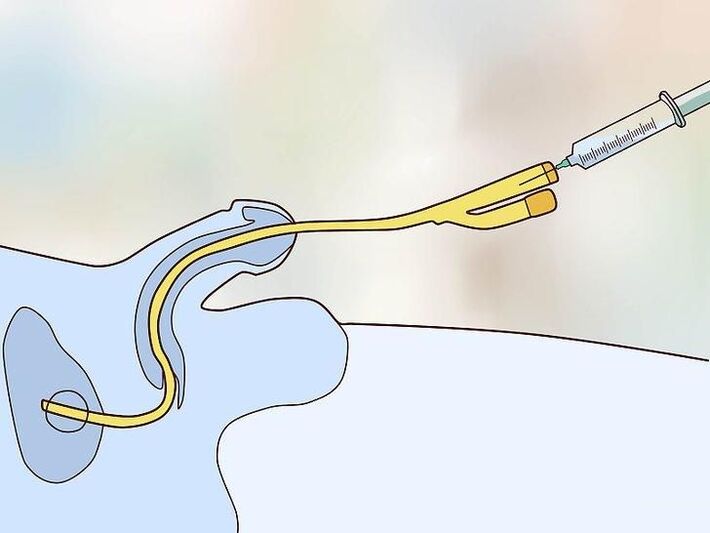Prostatitis is a fairly common disease of the prostate gland, affecting a significant proportion of men worldwide. Inflammation of the organ occurs for a number of reasons, which the urologist takes into account when choosing treatment tactics. The plan is drawn up for each patient individually, but in most situations it is impossible to achieve a positive result without the use of antibacterial agents.
Antibiotics: features of the pharmacological group

The term of the same name appeared for the first time in 1942, when special chemicals were obtained from microorganisms that could inhibit the vital activity of some bacteria and cause their death. Today, this is a broad category of drugs used in the treatment of infectious diseases caused by various pathogens. They are divided into two large groups. The first includes agents that cause the death of microbes. The second includes medications that only prevent their reproduction, but do not kill them. Unable to reproduce, they are destroyed by the body's immune cells.
Antibacterial drugs are classified according to origin, chemical composition, mechanism of action and frequency of occurrence of resistant forms. Despite their differences, they all have a lot in common. This:
- high efficiency;
- ease of use;
- local impact;
- efficiency;
- ease of reception;
- a small list of side effects.
Medicines aim to eliminate the inflammatory process and reduce symptoms. Currently, manufacturers in our country offer a wide range of medicines that are used in local medicine and sent abroad.
Treatment of prostatitis with antibacterial drugs
Before carrying out therapy, it is necessary to identify the type of pathogen and determine the nature of the disease. When are antibiotics vital for the treatment of prostatitis in men and in what situations can you do without them?

Significance for inflammation of the prostate
Inflammation of the prostate gland can be infectious and radically different in nature. In the first case, bacterial species are isolated separately. In the latter case, antimicrobial drugs are useless. Their use is possible only if the disease is caused by a representative of the biocenosis, and the degree of severity is no longer important.
Antibiotics for acute and chronic prostatitis are prescribed if the infectious form of the disease is confirmed.
The selection of funds is carried out by a specialist, taking into account the following factors:
- the causes of the inflammatory process;
- duration of flow;
- the degree of activity of the drug against the pathogen;
- individual sensitivity of the patient to individual components.
The effect of drugs on the gland
The use of antibiotics is prescribed by a doctor to eliminate pathogenic microbes. This treatment option allows you to achieve the following results:
- pain relief;
- normalization of body temperature;
- increase in urodynamics;
- restoration of prostate function.
With prostatitis, the inflamed organ always increases in size, exerting pressure on the surrounding tissues, which causes pain. Antibacterial agents help relieve swelling, restore the normal volume of the gland and its functionality.
Advantages and disadvantages
Inflammation and BPH are usually treated with antibacterial drugs of different groups. Each of them has its pros and cons. To determine the choice of the optimal drug, it is necessary to consider them in more detail.
| Group name | strengths | Shortcomings |
|---|---|---|
| Fluoroquinolones | Biological and clinical effectiveness; easy tolerability; long half-life; minimal side effects; high bioavailability. |
Prohibited during pregnancy and lactation; toxic effects on the liver and kidneys; development of symptomatic signs: nausea, vomiting, dizziness and pain. |
| Cephalosporins | High activity; good tolerance; synergy with the products of the previous group; minimal side effects. |
Relatively low effect against pneumococcus; gastrointestinal dysfunction; photosensitivity (rare). |
| Macrolides | Low toxicity; high concentration; bacteriostatic effect; no cross allergies. |
Causes symptomatic manifestations; digestive system disorder. |
| PENICILLIN | High speed of action; the minimum of negative reactions; relative safety; foreseeable consequences; short elimination period. |
Dissociation in the gastrointestinal tract, therefore administered by injection; Do not use for inflammation of the prostate. |
| tetracycline | Bacteriostatic effect; wide range of applications. |
Microbial resistance to drugs of this group |
Types of dosage forms
Complex therapy involves the use of various methods, one of which is taking medications. The pharmaceutical industry produces several dosage forms of antibiotics. In the treatment of prostatitis, tablets, capsules, injection solutions, ointments and rectal suppositories are considered the most suitable.

Local remedies
Medicines for topical use are considered "emergency" help in eliminating the disease. They are designed to deliver the drug to the site of the lesion and have a direct effect on inflammation and infection. For different forms of the disease, it is recommended to use drugs that have completely different medicinal effects. Today there is a large selection of current products.
These are creams, pastes, gels, emulsions. It is considered advisable to use them both externally during massage and rectal in the form of suppositories and tampons. Suppositories have no less effective effect.
Penetrating the lesion, they give the following result:
- pain relief;
- restoration of blood flow in the pelvic area;
- improvement of metabolic processes;
- inhibit inflammatory processes in the damaged organ.
The independent choice of any tool can worsen the situation and lead to serious consequences. Ointments are prescribed only for a chronic, slow process, and in an acute form they are strictly prohibited, as they can provoke the spread of the infectious agent through the bloodstream.
Suppositories have a similar therapeutic effect and are considered an absolutely safe form of medication. The most popular are suppositories with levomycetin and other medicinal ingredients. They all reach the site of infection, bypassing the intestinal tract, so they maintain their original concentration and do not have a negative effect on the digestive organs.
Medicines for internal use
Acute or chronic prostatitis is almost always treated with antibiotics. Most of them are available in the following forms: capsules, tablets, solutions for intramuscular injections, which are prescribed by a urologist for the treatment of prostate inflammation. The tablet form is more preferable for administration, as self-injection of antibiotics is impossible and dangerous.
Herbal remedies
As is known, in urological practice there are two main directions of treatment of prostate inflammation and adenoma: medication and surgery. However, many experts suggest trying to get rid of unpleasant symptoms with the help of natural remedies. The pharmaceutical industry produces a variety of products that are popular. Some are effective in systemic therapy, while others are used in symptomatic treatment.
Choosing the right medicine
Among the variety of medications, it is difficult for the average person to decide on any specific medication. How to choose the most suitable?

The selection of drugs should be done by a doctor, after having previously prescribed a series of procedures for examination. One of the most important diagnostic procedures is a smear from the urethra. The scraping from the mucosa is sent to the laboratory, where it is carefully examined to identify the type of pathogen. Here the bacteriological planting of the flora is carried out, the growth of which is monitored by a specialist. This determines not only the type of microbe, but also the degree of its activity and aggressiveness. And based on the results obtained, the urologist makes a decision on prescribing medication.
Antibiotic groups used for prostatitis
In the treatment of prostatitis, preference is given to broad-spectrum drugs that are active against a large number of microbes. This approach is due to the fact that in some cases the development of the inflammatory process occurs due to the influence of some types of pathogens. Based on this, the patient can be prescribed drugs from the following groups:
- cephalosporins;
- fluoroquinolones;
- macrolides;
- penicillins;
- tetracycline.
Each of the above is considered effective only against a certain group of pathogens, however, there are also interchangeable drugs; only a doctor can judge the appropriateness of the prescription.
Description of representatives
If you start listing all the antibiotics used for prostatitis, the list will be extensive. And yet, some of them deserve recognition because of their good tolerance. Fluoroquinolones are considered the "gold standard" in the treatment of inflammation.
Medicines that supplement antibiotic therapy
Treatment of prostatitis at home with antibiotics alone will not be effective, since combined drug therapy is used in practice to quickly get rid of inflammation in its acute course, as well as in the chronic form of the disease. This means that in addition to antibiotics, the patient is prescribed drugs from other groups. Traditionally, these are the following tools:
- non-steroidal anti-inflammatory drugs - reduce pain, relieve inflammation;
- analgesics (painkillers) - stop acute attacks;
- alpha-blockers - relax the prostate and bladder muscles;
- immunomodulators - strengthen the body's resistance to infections;
- venotonics and angioprotectors - strengthen the walls of blood vessels, improve blood microcirculation.
The best antibacterial drugs, according to reviews from patients and doctors
It is difficult to list all the antibiotics used in the treatment of prostatitis. Studying the review of each patient and the doctor's recommendation, we can conclude that in each specific case an individual regimen is drawn up and a specific drug is selected. This can be a tablet, suppository or injection.
| Pharmacological group | Indications for use |
|---|---|
| PENICILLIN | Ineffective against inflammation of the prostate |
| tetracycline | Chlamydia, trichomonas, ureaplasma, gonorrheal prostatitis |
| Macrolides | Infectious lesions |
| Cephalosporins | Aggravation of bacterial prostatitis, cystitis, ureaplasmosis |
| Fluoroquinolones | A disease of bacterial nature in both forms, pharyngitis, diseases of the genitourinary system |
Treatment of prostatitis without antibiotics: is it possible?
Treatment of the disease without the use of antibacterial drugs is possible if it is caused by congestion. By the way, non-infectious prostatitis is considered the most common form of pathology. As a rule, patients turn to a urologist when the process has become chronic, since in the early stages it is asymptomatic.
Therapeutic measures are mainly aimed at eliminating the cause that provoked the disease (restoration of hormonal levels, regular sex, full sexual intercourse). Then, the doctor applies a complex treatment, which includes:
- anti-inflammatory drugs;
- physiotherapeutic procedures;
- massage therapy;
- regular physical activity;
- folk remedies.
The use of antibiotics is considered inappropriate if the disease is detected in the early stages. Alternatively, to eliminate the risk of spreading microorganisms, which inevitably occurs during stagnation, broad-spectrum drugs are prescribed.
Antibiotics help treat prostatitis if the inflammatory process is caused by pathogenic bacteria. But, regardless of the relative safety of the drugs, they should be prescribed only by a specialist who can help to quickly cure the patient's illness. Therefore, at the first unpleasant symptoms you should visit a medical institution.



















